Citizens call for accountability, reconstruction
Eight days after rain left Karachi devastated, angry protesters gather at Frere Hall
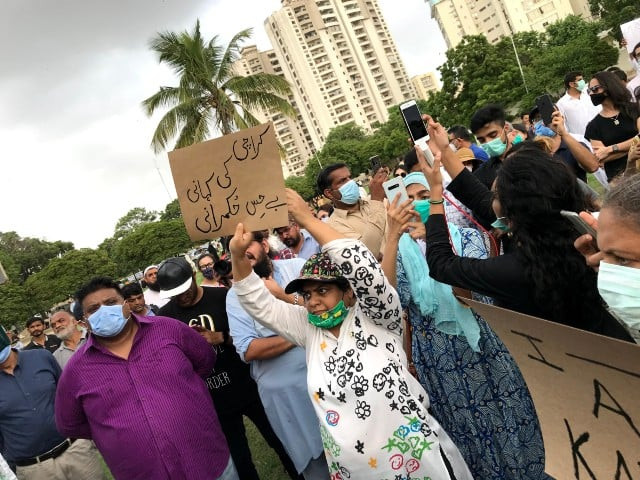
Scores of people, including children, gathered at Karachi’s Frere Hall on Friday evening to protest against the waterlogged city, eight days after record-breaking monsoon rains battered the metropolis.
While some carried placards and shouted slogans, others called for the reconstruction of infrastructure and the accountability of elected officials. The angry protesters, demanding comprehensive structural reform for Karachi, narrated tales of distress and suffering as parts of the city remain drenched and without power.
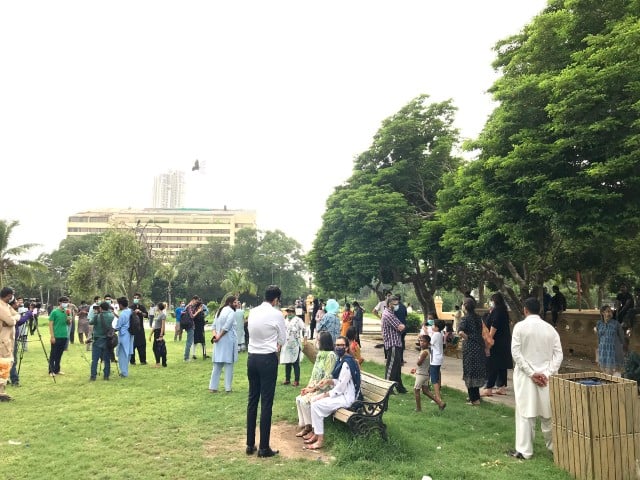
By the people, for the people
Speaking to The Express Tribune, former Karachi administrator Fahimuz Zaman shed light on the protest being citizen-run.
“We are not doing any politics here; we have come here with genuine demands. The main issue with Karachi is that powerful people live here, but it is the civilians who do not have any power,” he added. “Our city is in ruins, and the powerful are sitting in their homes, doing absolutely nothing!”
Though some protesters looked to activist Jibran Nasir to take the podium, he refused, saying that civilians should run the protest, not anyone belonging to the realm of politics.
All talk, no action
The protesters also called for an audit of taxes and funds collected for relief efforts.
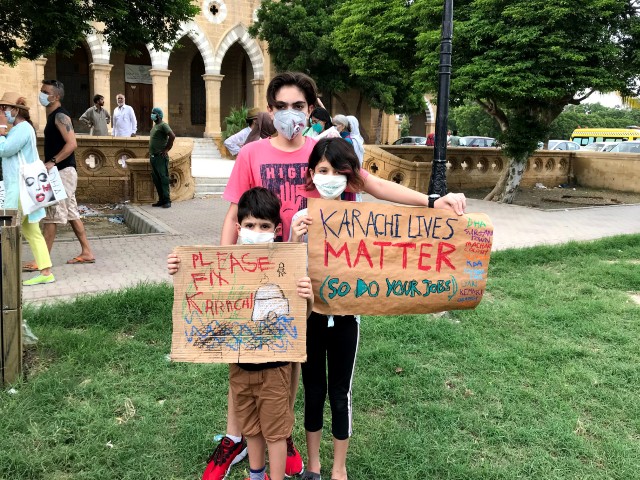
Dr Faryal Wali, a resident of Bath Island, insisted that citizens had a right to know how their taxes were being spent. “We are told that a huge sum of taxpayers’ money is spent on cleaning nullahs every year before the rain season begins. Where is the proof? How are the roads still flooded if nullahs are being cleaned? It’s high time we hold someone accountable for this!”
Actor Yasir Hussain also weighed in, saying one could not expect a revolution while sitting at home. “I don’t know if this is a watershed moment. Maybe people are waiting for their own homes to br submerged knee-deep in water, maybe they are waiting for their loved ones to die; maybe then they will speak up,” he said. “We need to step out of the comfort of our homes; speak up; do something! We need to put in some sort of effort to make ourselves heard!”
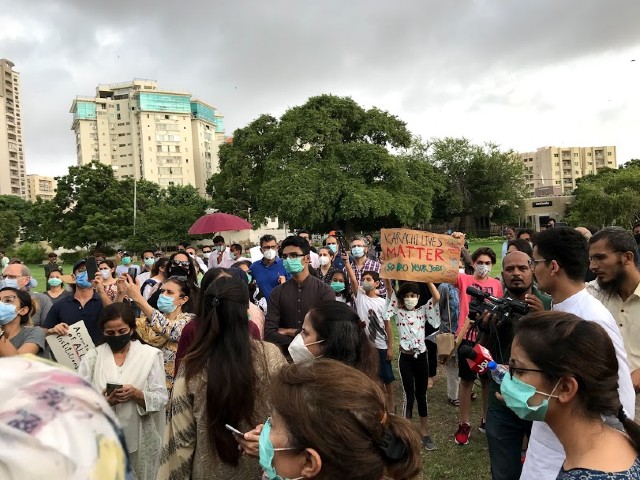
Heart of darkness
Speaking to The Express Tribune, Ghazala, a DHA resident, said that she saw two instances in the last week where funeral prayers were delayed and biers kept overnight at homes, as bodies could not be carried to the graveyard because of the flooded roads.
“There was no electricity, phones could not be charged, and even the internet was not available, so there was no way we could tell people about the deaths,” she added. “Only a handful of people from the neighbourhood could attend the funerals.”
Actor Feroze Khan too, said he was not protesting as a media figure, but as another Karachiite whose life had come to a virtual halt because of the rain. “I do not have water at my home. The only water available is the water seeping into my home through the roads!”
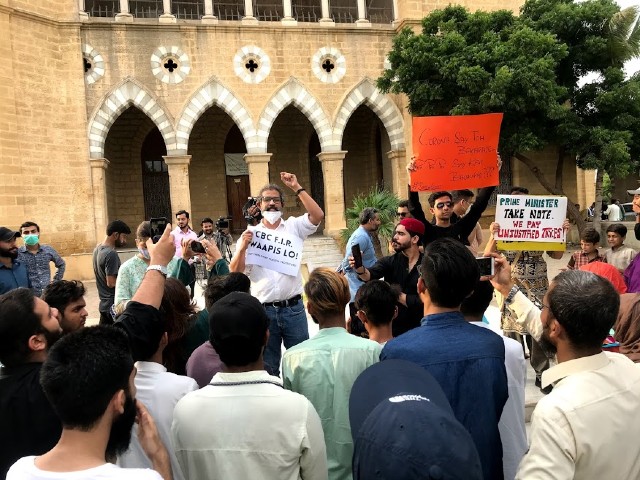
Another DHA resident, Farzana, said that her neighbourhood had been in darkness for over a week. “It’s like we are back in the Stone Age,” she said.
While most talked about institutional accountability, some protesters also highlighted how the resilience of Karachiites was what made them complacent, accepting the abhorrent living conditions, treading roads that are in ruins, and accepting the apathetic rulers running their city.
Announcing another protest at Karachi Press Club on Sunday, the demonstrators said all political parties must be on the same page if they wished to save the city.

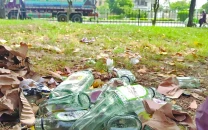

















COMMENTS
Comments are moderated and generally will be posted if they are on-topic and not abusive.
For more information, please see our Comments FAQ